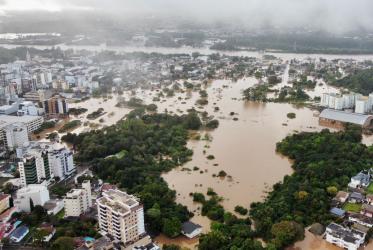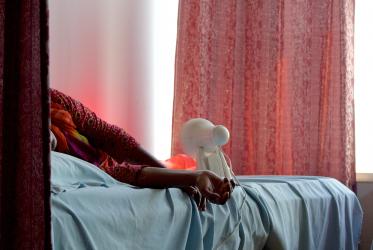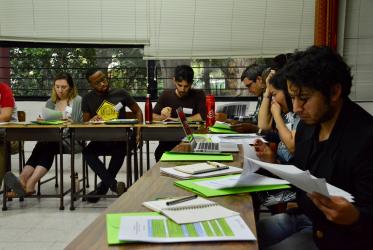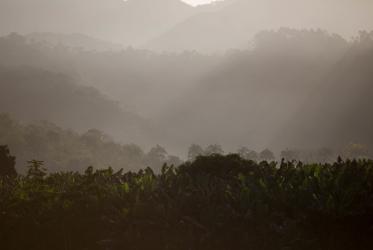Displaying 1 - 20 of 40
In wake of floods in Brazil, WCC expresses concern and solidarity
09 September 2023
WCC stands in solidarity with victims of major flood in Brazil
17 February 2022
WCC podcast deals with death and dying
15 December 2020
WCC condemns massacre of farmers in Philippines
12 April 2019
All pilgrim routes lead to COP24
11 December 2018
WCC Eco-School encourages youth to become eco-ambassadors
08 November 2018
Voices from Colombia: “What if we have no land to till?”
15 February 2018
Seven weeks of Lent highlight water justice in Latin America
12 February 2018
Protect the Amazon, urges WCC statement
22 November 2017
















